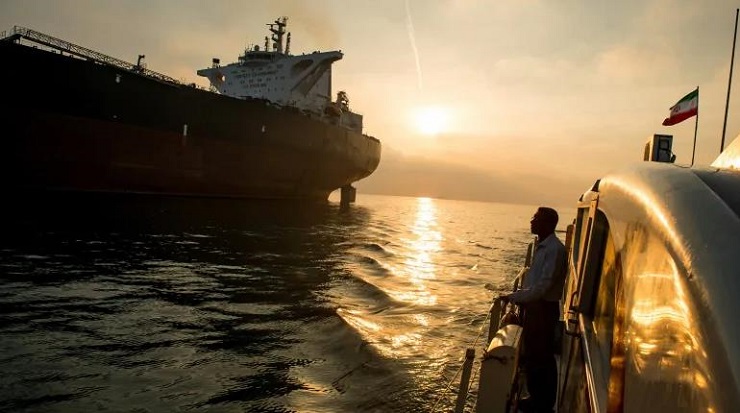If Iran was truly a threat to global peace and security, why would nations like China, India, Japan, South Korea and Turkey be trading with it? Why would the European Union seek to trade with it? Why would the United States struggle and eventually resort to global-scale coercion to convince the majority of the planet to cut ties existing or desired with Tehran?
In tightening sanctions on Iran, the Trump administration moved on Monday to isolate Tehran economically and undercut its power across the Middle East. But the clampdown has complicated relations with China at a particularly sensitive moment.
The decision to stop five of Iran’s biggest customers from buying its oil was an audacious strike at Tehran’s lifeline — one million barrels of oil exports daily, fully half of which go to China. The order was also aimed at India, Japan, South Korea and Turkey, all countries that trade robustly with the United States.
The NYT cites the 2015 Iran nuclear deal, which the US unilaterally withdrew from based on unsubstantiated claims that Iran had violated it.
The US has more recently withdrawn unilaterally from the Intermediate-Range Nuclear Forces (INF) Treaty with Russia based on similarly unsubstantiated claims that Moscow was violating it.
If it wasn’t clear, there is a pattern emerging where the US is compensating for its diminished ability to compete economically and politically, with increasingly aggressive accusations (of treaty violations, for example) followed up by equally aggressive sanctions and military encirclement.
As other researchers have pointed out the US-proposed Iran nuclear deal and the inevitable US withdrawal from it was planned as early as 2009 and was never intended to be a serious effort to resolve US-Iranian difference, but rather to create a pretext to widen them further in pursuit of long-sought after war with Iran.
The NYT article would note closer coordination between Washington and Riyadh over matters regarding oil prices. Other researchers have also pointed out that before this most recent escalation was implemented, Saudi Arabia attempted to court China’s leadership as a means of offering Saudi oil as an alternative to soon-to-be blocked Iranian oil exports.
While this all seems like a clever move by Washington, and while there are certainly many short-term incentives for nations like China, India, Japan, South Korea and Turkey to heed Washington’s provocative move, the world must ask itself: if the US can do this to Iran today, could it attempt to do this to other rivals upon the global stage, with China, India, Japan, South Korea or Turkey along with Russia and many others being targeted tomorrow?
Removing Iran from the many emerging developing nations challenging US dominion across the globe will further empower and embolden Washington, making it that much easier to target and undermine the next nation whose competitiveness Washington sees as intolerable.
Coming to a Global Crossroads
It seems the world has come to a sort of crossroads. If the world submits to America’s dominion over global oil trade in a move that will surely tip the ongoing US-Iranian feud in Washington’s favor, American hegemony will be granted an extended lease on life.
However, if the world unites in the face of this brazen presumption of American global domination, it will deliver a crippling blow to Washington, triggering a chain reaction of defiance and usher in an entirely new international order based on a more equitable balance of global power.
The latter is more or less inevitable, whether that blow is delivered at this juncture or the next.
Determining whether it is delivered at this juncture instead of the next, depends on the assessments being made in Beijing, New Delhi, Tokyo, Seoul and Ankara over whether or not these nations can afford economically and politically to suffer US retaliation if Washington is not bluffing about the consequences of defying it.
In the future they most certainly will be able to afford the consequences and many are already pursuing economic relations that will negate Washington’s malice, but paying that price may not necessarily be possible today.
The reaction of the global community in the face of America’s most recent declaration of global domination will be a bellwether of just how close at hand, or far in the distance a new global order, an alternative to Washington’s dominion, truly is.
There is also a middle ground likely to be adopted by nations threatened by America’s most recent declaration; moves by these nations to continue buying Iranian oil but through more indirect means.
Iran will be pressured and nations will have technically adhered to Washington’s demands, but at the same time oil will still be moving out of Iran and capital flowing back in its place. It will be in this manner that the clock will be “timed out” so to speak for America’s empire and the rest of the world allowed to finally move on with out.
Analysts have predicted many potential outcomes, but only time will tell for sure which way world history turns at these crossroads.
Gunnar Ulson, a New York-based geopolitical analyst and writer especially for the online magazine “New Eastern Outlook”.

